Letters To Video Game Designers
Being a game developer means taking many factors into consideration. Here, we'll dive into a few important tips around game design, namely the fun, functionality, and marketing of your game.
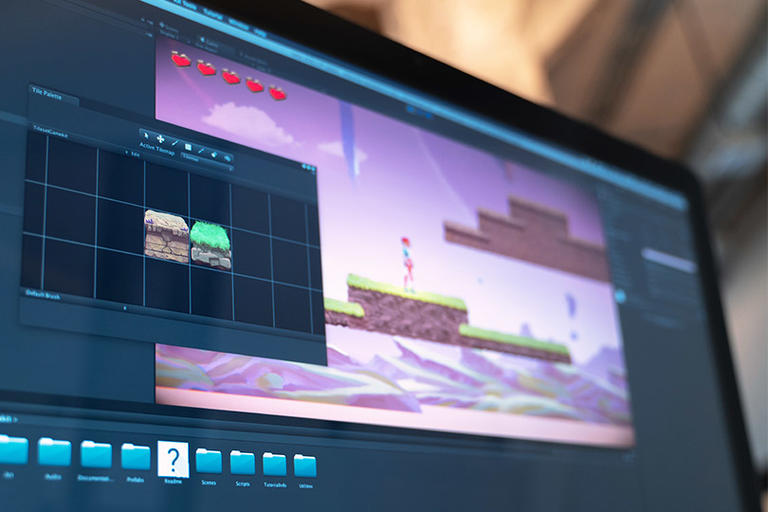
Have fun in Unity
Game design considerations
You're doing it; you're becoming a game developer. First, congratulations. Game design and development is an incredible outlet for creative expression, and you should be proud. It is a formidable undertaking, but you've decided to give it a shot. That is amazing.
Let this list of top 10 tips serve as a helpful guide as you continue your journey into game design. You'll see videos from other Unity developers and find useful links to more learning resources. Combined, these concepts they explore will help you understand some important elements of game design.
You don't need to follow all of this advice for your first projects, but these tips will become much more valuable as your work grows in scale.
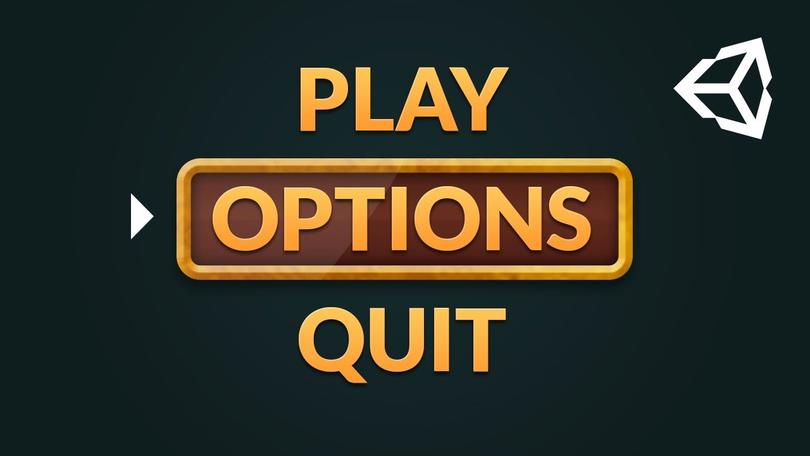
10. Design with users in mind
Great user experience (UX) is incredibly important to enjoyable gameplay. Menus and interfaces that are too difficult to navigate or are over- or under-designed can frustrate players. Your best bet is to keep things simple, intuitive, and consistent with the look and feel of your game.
Check out this video from Design Doc for a comprehensive overview of great user interface (UI) and UX design. For more Unity-specific UI creation, watch Code Monkey create a simple UI canvas. The video above by Brackeys shows you how to set up a straightforward and attractive main menu for your game.
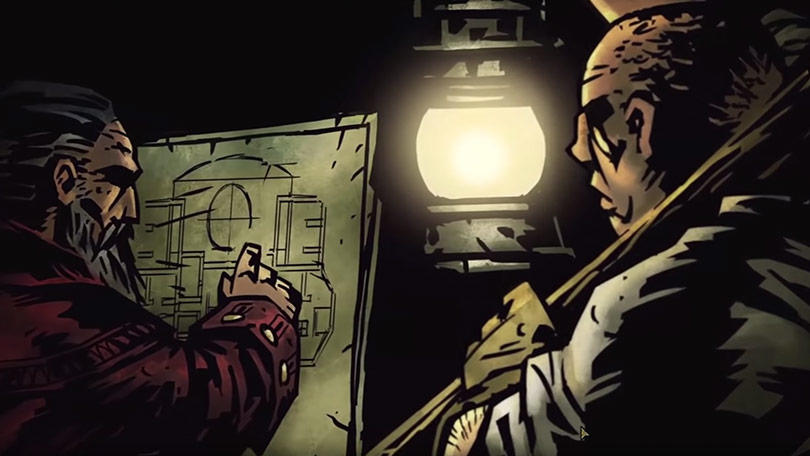
9. Find your game's hook
The hook of your game can be the story, the characters, the mechanics, even its aesthetic. The hook is the factor that endears your game to players. It's the thing that grabs, or "hooks," a player from the beginning and keeps them playing.
This is something you should consider early on in your project because it will ultimately determine the long-term appeal of your game. Above, Blackthornprod helps you conceptualize the hook for your game. For more on this (as well as how to keep players interested throughout their playthrough), check out this video from Extra Credits.
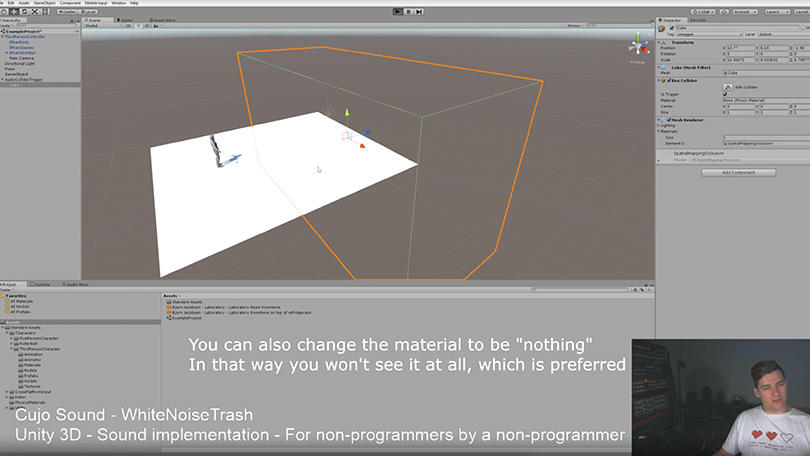
8. Hear that? Sounds like sound design
Whether you're creating a mobile hyper-casual or a fully immersive 3D game, the right sounds at the right time are an important part of the gameplay experience. Sounds can even serve as implicit direction to the player, helping them navigate levels or giving them cues about the outcome of their actions. Most importantly, sound design sets the mood and atmosphere of your game.
The video above from Cujo Sound will show you some Unity sound design basics. For more, check out this video the online news network Vice did on how Netherrealm Studios created the gruesome sounds in Mortal Kombat. Their secret? Destroying fruits and vegetables.
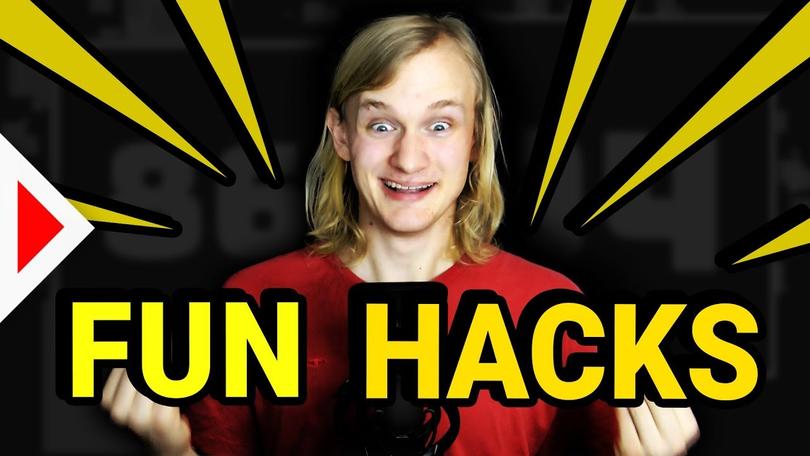
6. Hyperfocus on fun
We've finally made it to the obvious video game designer tip: make your game fun.
It's important to note that there are different types of "fun" in a game. Fun can be experienced through intriguing stories and memorable characters, or it can be related to how you interact with the game. You can create fun by provoking emotional responses or using a design style that captivates players.
Jonas Tyroller shows us in the video above how simple tweaks to your game can make them more fun. For a deeper dive that revisits some of the concepts we've already discussed (creating virality, finding a game's hook), check out this article from iD Tech on what makes video games fun.
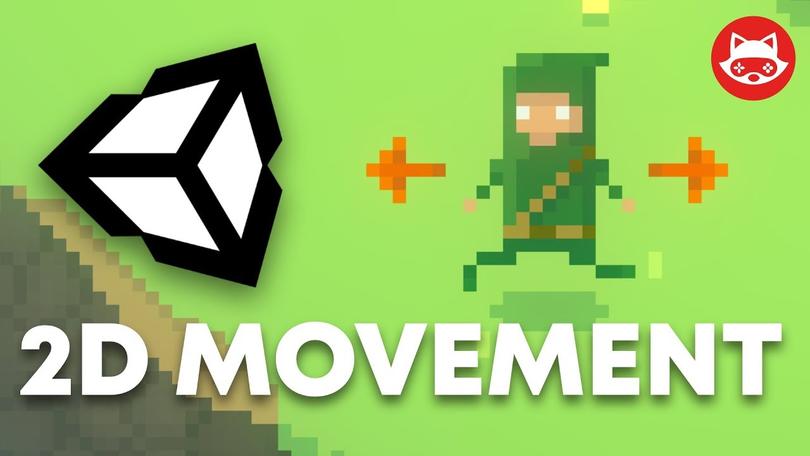
5. Keep controls intuitive
Your game's control scheme is related to user experience and impacts how efficiently and effortlessly players learn to play your game. Additionally, the controls determine the players' progression throughout the entirety of your game. So it is no small matter to make your game controller or keyboard and mouse functionality as comfortable and easy to learn as possible.
To learn the details on setting up controls (and animations as an added bonus) for a 2D project, check out CouchFerret's video above. For a tutorial on creating FPS controls, watch this video by Brackeys. And for a funny take that hits home on controls that have become entirely too weird, read this Gamesradar article on gaming's most ridiculously complex control schemes.
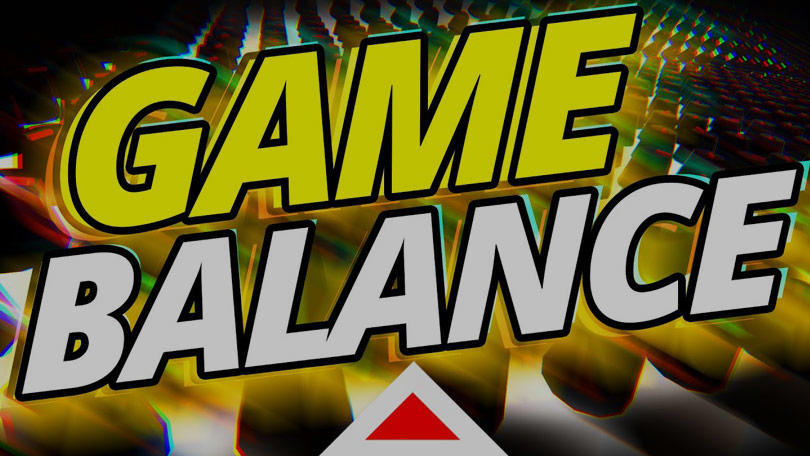
4. Balance the gameplay
There is nothing worse than playing a game where you feel disconnected or disadvantaged. Weapons that do not deal consistent or appropriate damage, levels that are visually confusing, enemy AI that presents no challenge – these are all issues that represent poor gameplay balance.
Gameplay balance is one of the biggest challenges for any video game designer, and for good reason: the definition of "balance" shifts with every game you create. An imbalance in one game may be the exact effect you want in another project, depending on the type of game you're creating. Perhaps the best way to test the balance of your game is to let other people play it and give their feedback.
Check out another video from Jonas Tyroller above, where he offers tips on how to balance your game.
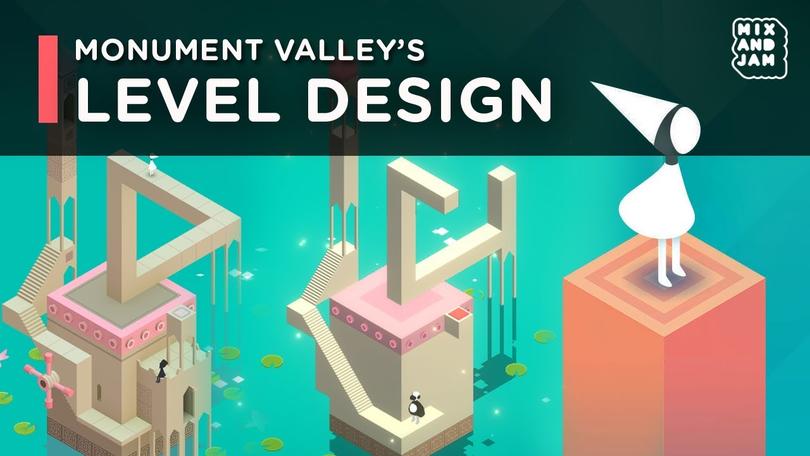
3. Make your game stand out
Games are literally all about entertainment. Making a fun game should be your driving goal. One of the quickest ways to achieve fun is to make your game unique and, therefore, highly interesting.
Uniqueness in games tends to come down to mechanics and design elements. Take Untitled Goose Game, for instance. To paraphrase Hunter S. Thompson, that game is too weird to live, but also far too rare to die. Its endearing weirdness is key to its widespread popularity.
For another example, Mix and Jam explains the level design of Monument Valley in the video above (and he'll show you how you can create some Monument Valley-style levels of your own).
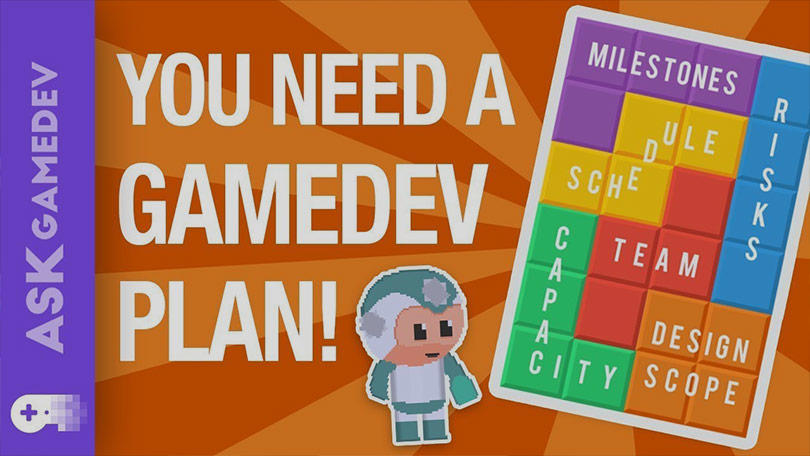
2. Get organized
Video game designers have plenty to do. Whether you're a solo dev or part of a large team, time management and organization are essential for keeping larger game projects on track.
Trello is a simple tool for planning and monitoring your design processes. Jira is a similar tool, usually used by agile teams to track, report, and collaborate throughout the development cycle. HacknPlan is a project management tool specifically built for game development. These tools and many more will help you track progress and aim for milestones throughout production of your game.
For a deeper dive into game design and development project management, check out the video above from Ask Gamedev. They jump into subjects like project scope, time to complete development, project management tool specifics, and creating your game's roadmap.
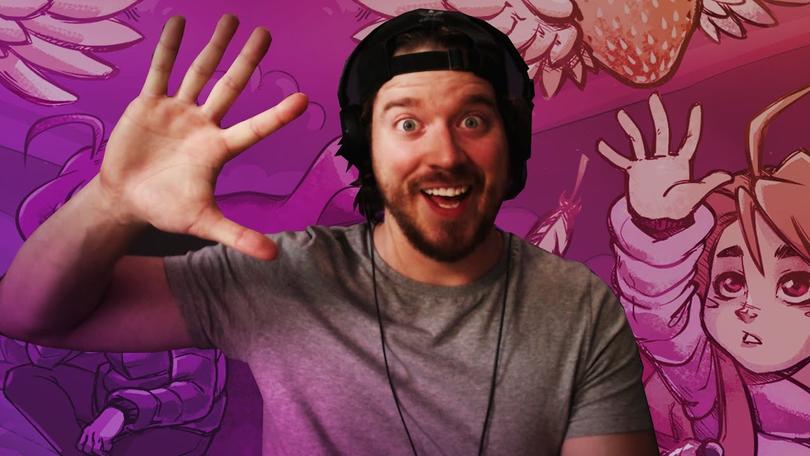
1. Market your game
Ready to go full businessperson mode? There's no way around it: marketing is essential. For people to play your game, they need to know it exists.
Luckily, there are many easy ways to market your game. Using social media is one way, and it can be absolutely free. Post screenshots and videos, use relevant hashtags, and put yourself out there as a video game designer. If you're connected with people who actively promote or participate in game development and have substantial follower bases, you can get a lot of new eyes on your project.
Traditional routes like press releases and paid advertising will get some people's attention and build awareness for your project. Take a look at this Gamesindustry.biz article for more great indie game marketing tips. You can also watch the video above from Thomas Brush and learn about marketing hacks for your game.
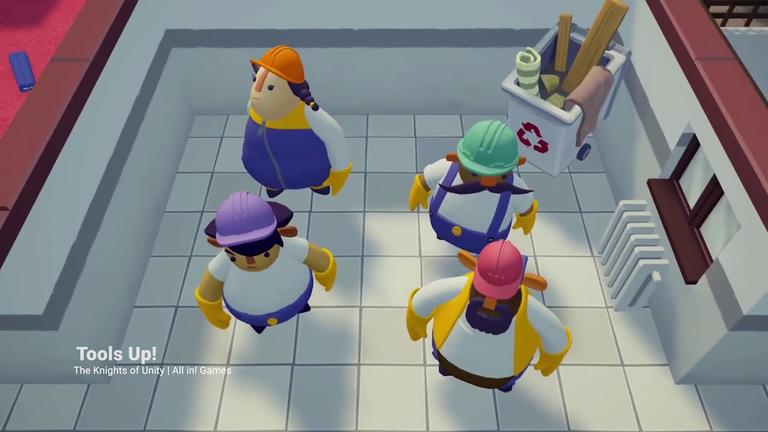
Impressive Indie Games Made with Unity - Unite Copenhagen
The bottom line
Launching a successful game that people will love involves a lot of moving parts. But we think that you're up for the challenge – you're already here. You're reading this, you're checking out our links and videos, and you're doing your own research.
You're getting ready to create something wonderful. When you finally do, be sure to tell everyone about it, including us. We want to hear what these video game designer tips helped you achieve.
Tips and tricks at every turn
Download the Unity Editor, keep checking out our beginner resources, and continue your journey into game development.
Letters To Video Game Designers
Source: https://unity.com/how-to/beginner/10-game-design-tips-new-developers
Posted by: berryexisparbace.blogspot.com

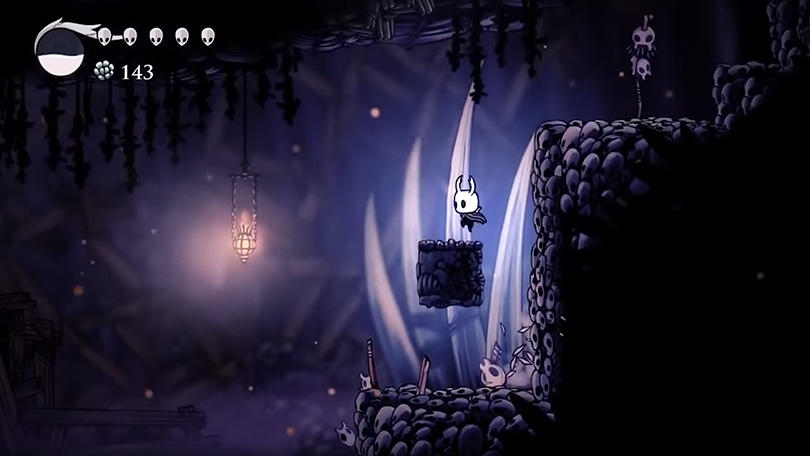
0 Response to "Letters To Video Game Designers"
Post a Comment